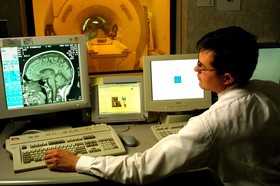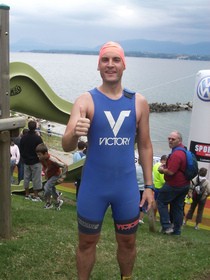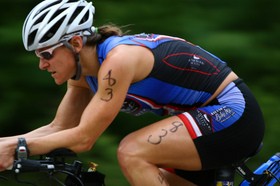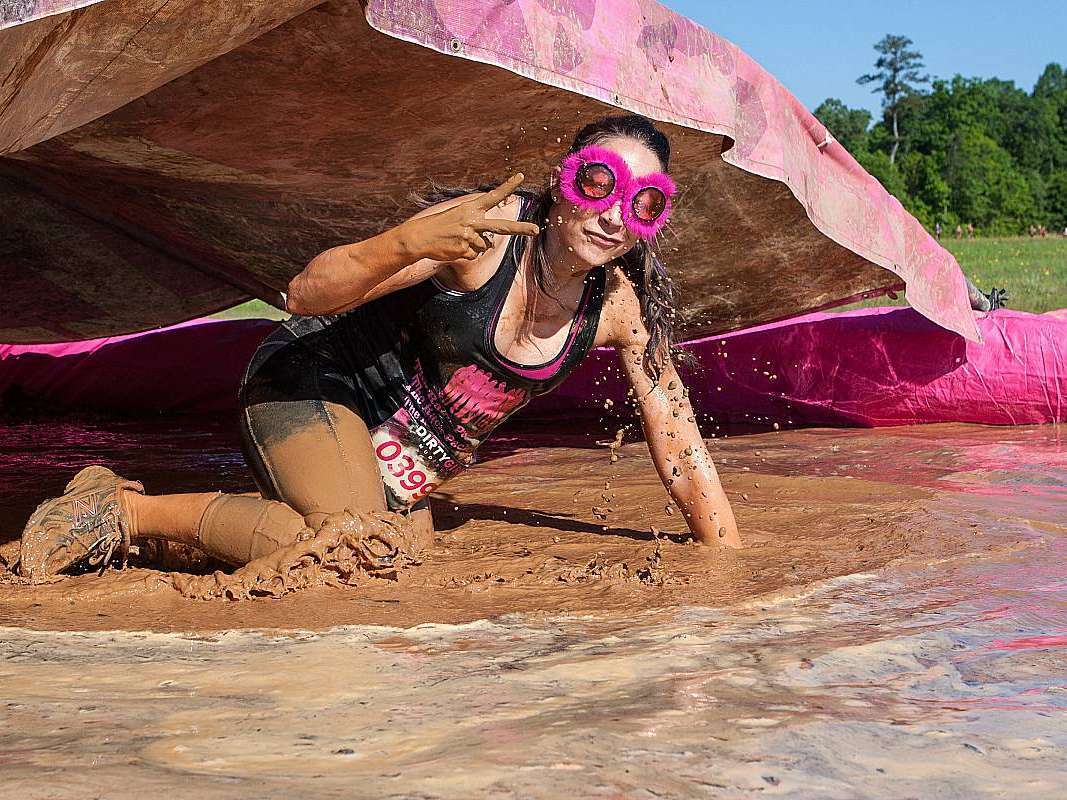Athletes often say about their sports performance, “It’s mostly mental.”
 In other words, many athletes have a similar set of physical skills and capacities, but what often enables one athlete to perform better than another is “mental” — things such as confidence, focus, calm, resiliency, determination, and self-control.
In other words, many athletes have a similar set of physical skills and capacities, but what often enables one athlete to perform better than another is “mental” — things such as confidence, focus, calm, resiliency, determination, and self-control.
We are prone to especially notice the superior athletic skills and abilities of epic athletes like Michael Jordon and Tiger Woods. They, however, attribute mental toughness as the key to their success.
For example, Michael Jordan turned failure into a deep motivation for success, and claims his determination, not his natural talent, was his true greatness.
The mind is such a critical factor for sports performance that there’s an entire field devoted to it: sports psychology.
What Is Sport Psychology?
Sports psychologists have 2 primary objectives:
- to understand how psychological factors affect an individual’s physical performance; and
- to understand how participation in sport and exercise affects a person’s psychological development, health and well-being.
Sport psychology deals with improving performance through managing emotions, and minimizing the psychological effects of injury and poor performance.
Some of the most important skills taught include goal setting, relaxation, visualization, self-talk, awareness and control, concentration, confidence, using rituals, attribution training, and periodization. We will be covering some of these in more detail in upcoming articles.
How Psychological Factors Relate To Sports Performance
If you want a practical example of how mental or psychological factors relate to sports performance, take a moment and read The Top 10 Deadly Mistakes Athletes Make With Their Pregame Attitude. It covers what every athlete and coach needs to learn in order to improve mental preparation for competition.
Here are several articles about the relationship between sports psychology and triathlon.
Six-time Ironman World Champion Mark Allen recently released a book Fit Soul, Fit Body, which delves into how developing the psychological and spiritual dimensions of his life transformed his performance as a triathlete.
Listen to an interview with Mark Allen about the book.
It’s especially true that endurance sports like triathlon involve a significant mental or psychological dimension. An endurance athlete recognizes that their mind is their most important muscle, and learns how to apply mind over pain.
Ultramarathon runner, Dean Karnazes, says, “The human body has limitations. The human spirit is boundless.” Karnazes explains that if you’re going to explore the boundaries of human endurance, you have to learn to adapt to more and more pain. To prepare for the searing heat of the Badwater race, Karnazes went on 30-mile jogs wearing a ski parka over a wool sweater.
The Importance Of Self-Confidence
There is no debate that self-confidence is one of the most significant psychological factors related to sports performance. In general, self-confidence with respect to sports performance is defined as “the strength of the belief in your ability to execute.”
There are 2 aspects related to self-confidence:
 1. “global self-confidence” is a general sentiment you have about yourself that you can succeed and accomplish things you set your mind to. Whether it is triathlon, relationships, vocational pursuits, or any new challenge, global self-confidence is a strong inner sense of healthy self-confidence about doing well
1. “global self-confidence” is a general sentiment you have about yourself that you can succeed and accomplish things you set your mind to. Whether it is triathlon, relationships, vocational pursuits, or any new challenge, global self-confidence is a strong inner sense of healthy self-confidence about doing well
2. “task-specific confidence” is confidence related to the skills necessary for performing your specific sport. For example, a golfer has task-specific confidence in his or her golf swing and hitting a desired target, or a tennis player had task-specific confidence in his or her skill to execute a specific shot of speed and location.
One of the challenges of the sport of triathlon is the number of skills and tasks for which you have to develop competence:
- There are the motor skills of swimming, biking, and running, developing endurance in each area, and combing these together in the swim, bike, run triathlon format.
- There are also many technical skills associated with triathlon gear.
- There are several just associated with your bike such as changing a flat tire.
- Then there is the ability to put all this together and execute these skills and tasks in competitive race conditions.
How To Boost Your Self-Confidence
Here are some suggestions for helping boost your self-confidence as a triathlete:
![]() Join a triathlon club.
Join a triathlon club.
Joining a triathlon club is a great way to meet other triathletes and become an active part of the larger triathlon community. Psychologically, this association and involvement contributes to an overall feeling that you are a bona fide triathlete. You are also likely to find that this connection to other triathletes will be a source of great encouragement. Most experienced triathletes enjoy encouraging and helping along newcomers.
![]() Do group training.
Do group training.
I meet a lot of triathletes who prefer to train alone; but it can help build self-confidence to train at least some of the time in groups. I often do my long runs with a local running club, and I participate in group cycling rides and group open-water swims that are organized through a nearby multi-sports shop. By doing this, you will become more familiar and confident with more race-specific conditions, especially as it relates to the swimming and biking legs of triathlon competitions.
![]() Set realistic goals.
Set realistic goals.
Nothing destroys confidence more than setting unrealistic goals and failing to achieve them. For a new triathlete, consider progressing through the short-distance to long-distance triathlons. Do a few Sprint Triathlon before doing an Olympic distance triathlon. Then, do several of those before you decide to do a half Ironman. I have a friend who did 8 half Ironman triathlons before deciding to do the full Ironman. I can’t emphasize enough how important it is to gradually increase your confidence. Biting off more than you can chew at first might seriously damage your confidence and take considerable time rebuilding.
![]() Diversify who you train with.
Diversify who you train with.
It’s good to challenge and push yourself by training with triathletes who are further along than you; you can learn a lot. But consider finding a triathlete training partner that is at a similar level of development as you are. It can be a little demoralizing to always be left behind by triathletes who are beyond your level. Sometimes it helps to be reminded that the world is filled with triathletes who are right where you are.
![]() Practice all race scenarios such as transitions.
Practice all race scenarios such as transitions.
Make a list of everything you have to do and might have to do in order to successfully complete a triathlon. For example, practice: setting up your transition area, executing the transition from swim to bike and from bike to run, changing a flat tire, running into the water (or diving into the water) for a triathlon start, properly grabbing a cup of water or sports drink while running, etc. Make sure you spend ample time mastering these skills and tasks before race day.
![]() Get professional input or coaching.
Get professional input or coaching.
Participating in a triathlon camp, signing up for a masters swim class, or forging a working relationship with a triathlon coach are all ways to help build self-confidence. Among other things, you will receive professional guidance in mastering proper swimming, biking, and running technique, which is one of the most significant factors for boosting self-confidence.
What helped build your self-confidence as a triathlete? Leave a comment and let us know what was helpful for you.
I’m over 40 years old, but I don’t give up easily. It wasn’t too long ago that I was exploring the idea of doing my first triathlon. If I can do it, you can too! I'm proof that with a little determination and training, you can get a great deal of fulfillment participating in marathons, triathlons… even ultramarathons.





